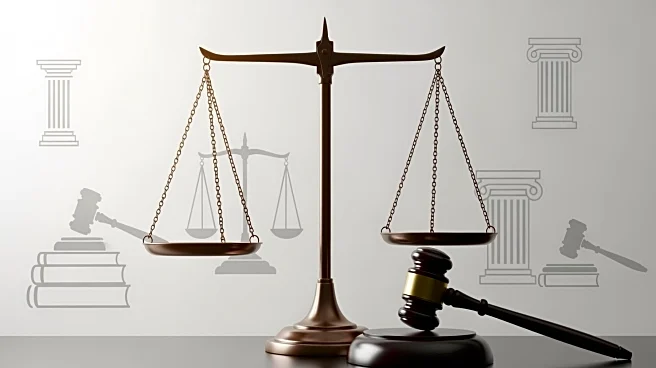What's Happening?
Former FBI Director James Comey is seeking to have a federal indictment against him dismissed, citing claims of vindictive prosecution and questioning the appointment of interim U.S. Attorney Lindsey Halligan. Comey's attorney, Patrick Fitzgerald, argues
that the charges are a result of an abuse of power by President Trump, who allegedly ordered the prosecution due to personal animosity. The indictment includes charges of making false statements to Congress and obstruction of justice. Comey's legal team contends that Halligan's appointment was improperly executed, as she was appointed without Senate confirmation, a move that has faced legal challenges in other states. A hearing on the motions is scheduled for November 19 in Alexandria, Virginia.
Why It's Important?
The case against Comey highlights ongoing tensions between former President Trump and his critics, with potential implications for the independence of the U.S. justice system. The challenge to Halligan's appointment underscores concerns about the executive branch bypassing Senate confirmation for key legal positions, which could set a precedent for future appointments. If Comey's indictment is dismissed, it may embolden other critics of the Trump administration to challenge similar legal actions. Conversely, if the charges proceed, it could reinforce the administration's ability to pursue legal actions against its opponents.
What's Next?
The upcoming hearing will determine whether Comey's indictment will be dismissed or if the case will proceed to trial. The decision could influence other legal challenges to interim U.S. attorney appointments made without Senate confirmation. Additionally, the outcome may impact the broader legal and political landscape, particularly regarding the balance of power between the executive branch and the judiciary.
Beyond the Headlines
The case raises questions about the potential for political motivations in legal proceedings and the ethical implications of using prosecutorial power to target political adversaries. It also highlights the challenges of maintaining judicial independence in a highly polarized political environment.















